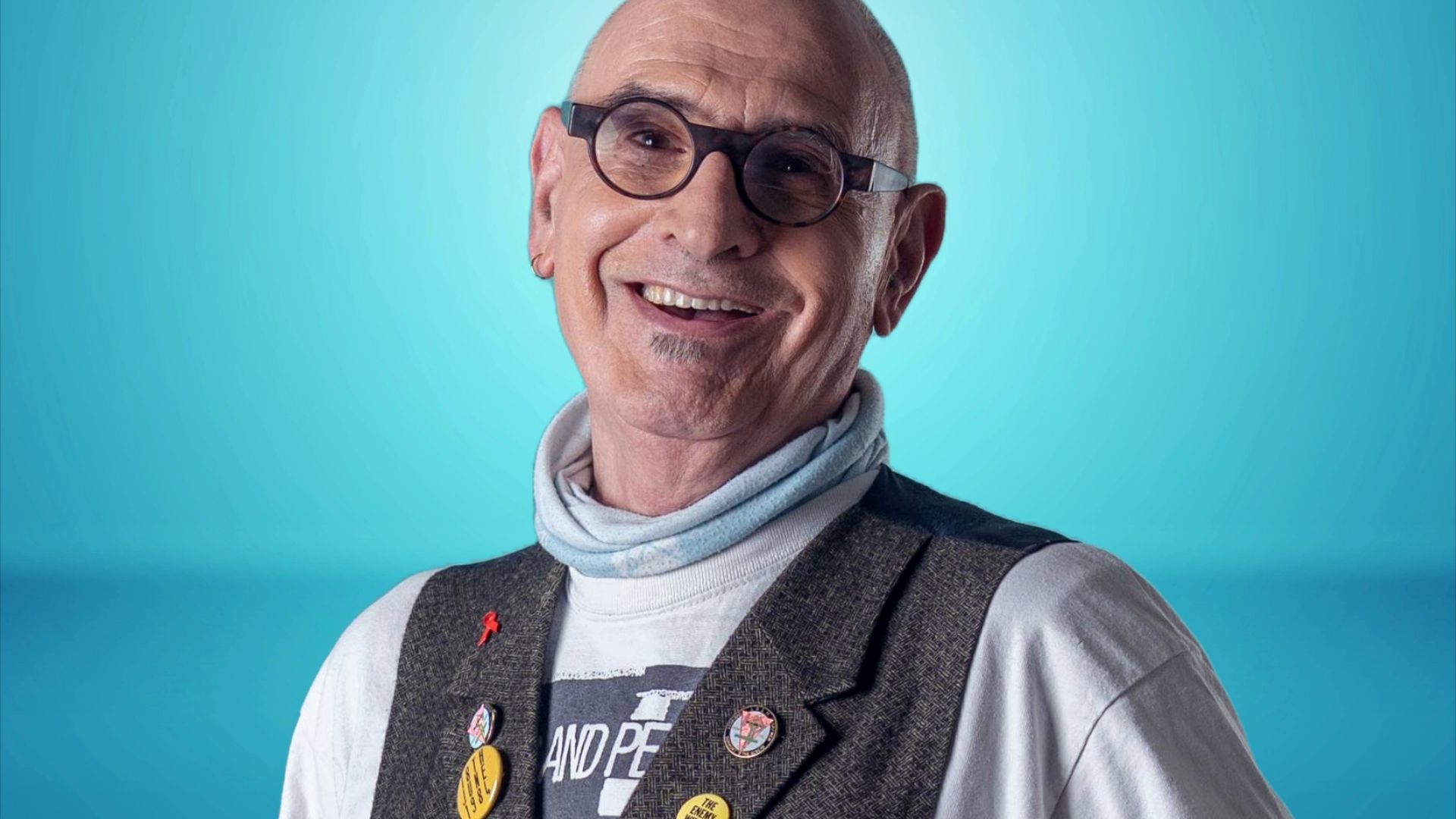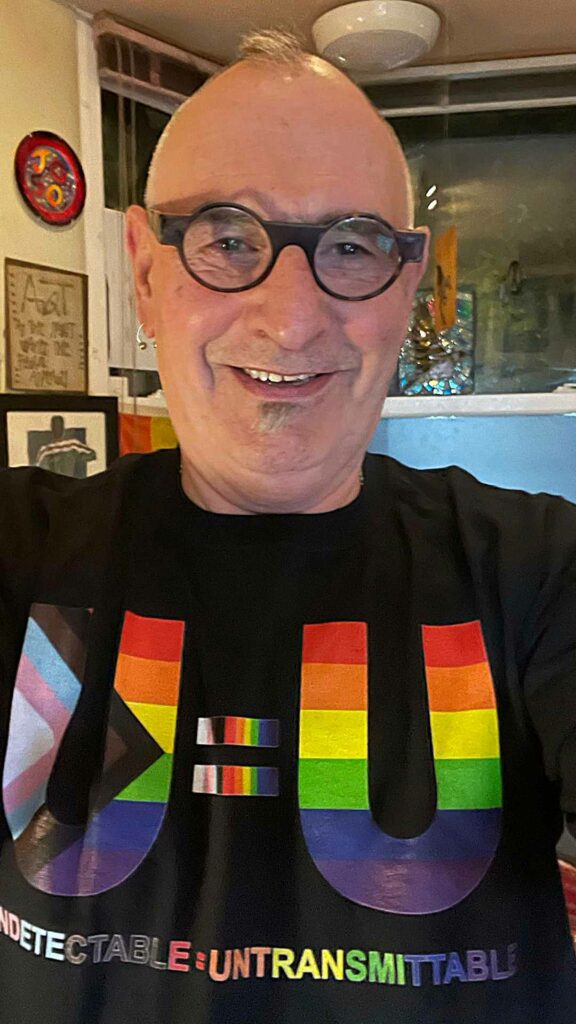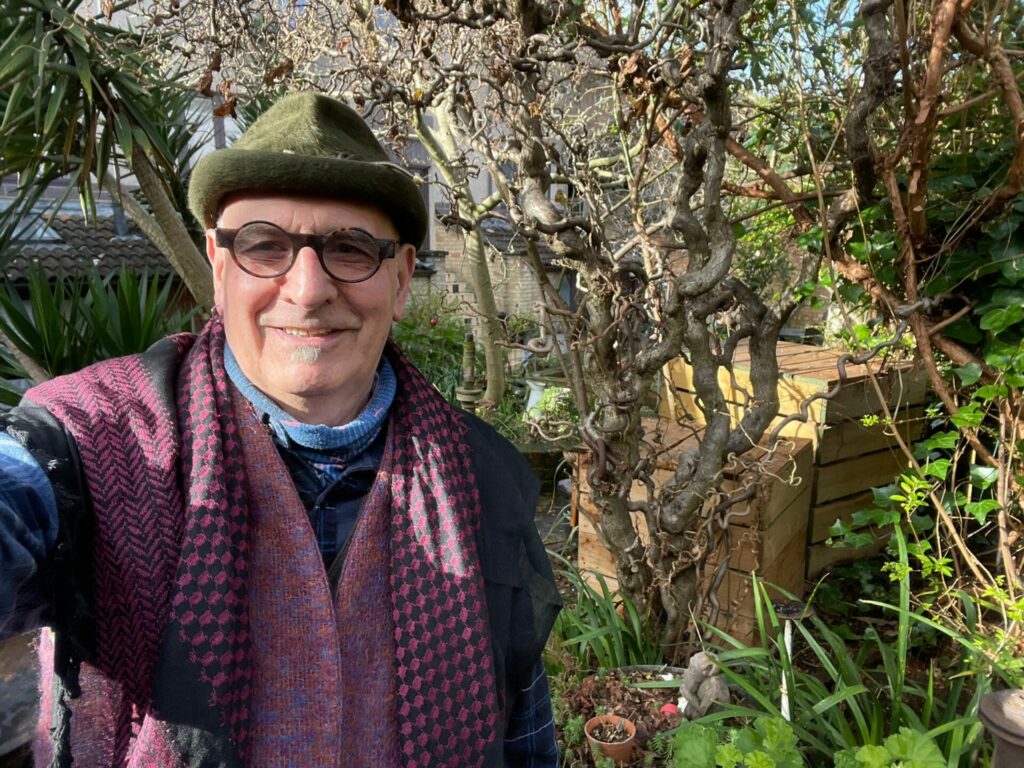“A walk in the park”: Jonathan Blake on thriving with HIV and why visibility still matters
In partnership with ViiV Healthcare
By Dale Fox

When Jonathan Blake became one of the first people in the UK to be diagnosed with HIV, there were no treatment options, limited public awareness, and very little hope. Over 40 years later, he’s still here – thriving, speaking out, and reminding us why visibility and education matter more than ever, especially during Pride season.
“Oh gosh,” he begins. “In some ways I kind of reflect on my journey every time I take my medication,” he explains.
In 1982, Jonathan was the first person diagnosed with HIV in London and at the time, the outlook was grim. “They came in and they told me: ‘Jonathan, you have a virus. There is no cure. You have between three and nine months to live.’” What followed was despair, then resilience. “I thought I’d better get on and live. But how?”
What saved him, he says, was community. Jonathan became an early member of Lesbians and Gays Support the Miners (LGSM), the grassroots group that famously raised funds for striking Welsh miners in the mid-1980s. Their unlikely but powerful alliance helped shift public opinion on LGBTQ+ rights and inspired the 2014 film Pride, in which Jonathan was portrayed by actor Dominic West.
“What came out of that is simply astonishing,” he says. “One community supporting another. And out of that came change – real change.”
His story also mirrors the evolution of HIV treatment. He avoided early experimental drugs, which carried significant side effects, and began antiretroviral therapy in 1996. “The morning of the fourth week, I woke up with the most amazing amount of energy… It was like Lazarus raised from the dead!”

Then, in a moment of quiet triumph, he did something that symbolised his return to life:
“I laid a patio outside my French windows. I’d never done anything like that. It was incredible.”
Looking back, he reflects on just how far things have come: “The difference between the medications now and the medications then is like chalk and cheese.”
Indeed, as Dr Jean van Wyk, Chief Medical Officer at ViiV Healthcare, explains: “We’ve been developing solutions since the start of the HIV epidemic. Thanks to advances in treatment, HIV is now considered a chronic condition, meaning most people with HIV live long and happy lives. Today’s HIV medication options are more effective, easier to take, and have fewer side effects compared with the treatments of the past.”

Jonathan is also particularly passionate about U=U – undetectable equals untransmittable. “It’s probably the most important thing,” he says. “Psychologically, it’s such a release… I’m no longer this leper. Thanks to medication, I can enjoy sex without worrying about passing on HIV.”
What is U=U?
U=U stands for Undetectable = Untransmittable. It means that people living with HIV who are on effective treatment and maintain an undetectable viral load cannot pass the virus on to their HIV-negative sexual partners.
This message is reshaping the conversation around HIV, reducing stigma, and helping people living with the virus feel empowered in their relationships. Thanks to advances in antiretroviral therapy (ART), HIV is now considered a manageable condition — and U=U is a key part of that transformation.
Even when condoms aren’t used and PrEP (pre-exposure prophylaxis) isn’t taken, there is no risk of transmission if the HIV-positive partner is undetectable.
Source: ViiV Healthcare
As Dr van Wyk explains, “U=U holds significant power in the battle against HIV stigma, raising awareness about the importance of taking and adhering to antiretroviral therapy (ART) within the broader community and empowering people with HIV in their sexual relationships.“
That message is also central to another breakthrough: PrEP (pre-exposure prophylaxis). “This is a medication that can be used to protect yourself,” Jonathan says. Dr van Wyk elaborates: “PrEP has been transformative, offering effective prevention options has empowered individuals, reduced new HIV diagnoses, and fostered a feeling of empowerment in people taking control of their own personal health. Prevention is one of the essential pillars in our efforts to end the HIV epidemic.”
What’s HIV PrEP?
PrEP (pre-exposure prophylaxis) is a medicine taken by people who don’t have HIV that can substantially reduce the risk of acquiring HIV if they’re exposed to the virus.
The “pre” in pre-exposure means the medication is taken before coming into contact with HIV. “Exposure” refers to that contact, and “prophylaxis” means taking action to prevent infection.
Source: ViiV Healthcare
Stigma, however, remains an issue. “People are still being diagnosed and the message still is not getting through,” Jonathan says. “For ViiV to be raising HIV awareness and to get it spoken about is really, really important.”
Dr van Wyk agrees: “The LGBTQ+ community is among the most impacted by HIV. Talking about HIV during Pride matters because, although we have made great progress, we still have work to do to raise awareness and challenge the stigma that still faces people today.”
Jonathan also credits the transformation of HIV care to healthcare workers. “The nursing practices that went on when nurses were looking after HIV patients in those early awful years – that completely changed the way that nursing is practised within the whole of the NHS,” he says.
He praises nurse and activist Leigh Chislett, founder of 56 Dean Street, for reimagining what sexual health clinics could be. “He felt that clinics should be places that are light and airy and where people want to come – as opposed to the dark, dingy basements where you’re made to feel kind of dirty and rubbish, as they were in the early days.”
Beyond clinics, Dr van Wyk says ViiV supports the LGBTQ+ community year-round. “Pride is an important moment for the LGBTQ+ community but being an ally means going beyond a single moment.
“At ViiV, our support for communities most impacted by HIV is unwavering all year-round. We stand united with the community to drive meaningful change and to leave no person living with HIV behind.”

Jonathan’s advice to someone newly diagnosed is filled with encouragement: “Be kind to yourself. Don’t start beating yourself up. Just accept it. You can have a wonderful life. Having HIV these days can actually be a walk in the park.”
And what gives the pair hope?
“Young people,” Jonathan says. “They step up. They make demands. So, I think we’re all right.”
Dr van Wyk adds, “I am very excited about the promising advances in HIV treatment and prevention that still lie ahead of us. For example, researchers are looking at the next generation of medicines, which include extended dosing intervals for therapies where time between doses could be many months apart. In addition, the search for a vaccine, and ultimately a cure, also still continues at pace.”
About ViiV Healthcare
ViiV Healthcare is a global specialist pharmaceutical company 100% dedicated to HIV medicines and research. Founded in 2009 as a joint venture by GSK and Pfizer, with Shionogi joining in 2012, ViiV Healthcare’s mission is to leave no person living with HIV behind.
As the only pharmaceutical company solely focused on HIV, ViiV Healthcare is committed to delivering innovative new options for the care and treatment of people impacted by HIV/AIDS. Their work encompasses:
- Research and development: Advancing HIV treatment and prevention through innovative science, including long-acting injectable therapies.
- Community engagement: Collaborating with communities affected by HIV and AIDS worldwide to support sustainable programmes and initiatives.
- Ending the HIV epidemic: Working towards an HIV free generation, through partnerships and innovative solutions.
Learn more at www.viivhealthcare.com
